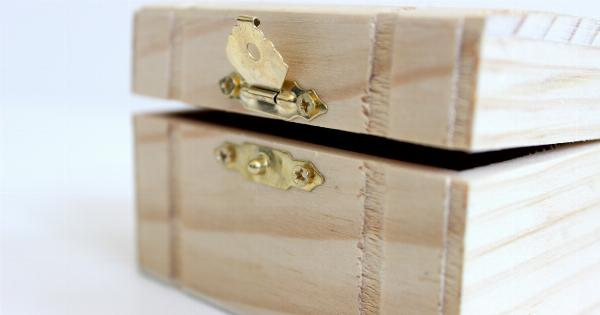Throughout life, we encounter many obstacles that often leave us feeling defeated, exhausted, and weak.
Whether it be an illness, a mental health setback, or just a tough period in life, it can be difficult to regain your strength and feel like yourself again. That being said, there are many natural ways to help recover lost powers. Below are 30 effective ways to help you recover your strength and vitality:.
1. Get enough sleep
Sleep is essential for recovery. Without adequate sleep, your body doesn’t have enough time to recharge, and you won’t be able to function at your best. Make sure you aim for at least 7-8 hours of sleep every night.
2. Exercise regularly
Exercise not only improves your physical health but also your mental health. It can help reduce stress, anxiety, and depression. Try to exercise for at least 30 minutes a day, whether it be a walk, jog, or yoga class.
3. Eat a well-balanced diet
Your diet should be balanced and consist of whole foods with plenty of fruits and vegetables. Don’t forget to hydrate and drink plenty of water throughout the day.
4. Take time for self-care
Self-care means taking time to do things that you enjoy and that help you relax. This can be anything from reading a book, taking a bath, or meditating. Figure out what works best for you and make it a priority.
5. Spend time outside
Spending time outside can help reduce stress, improve your mood, and give you a fresh perspective. Take a walk in nature or just sit outside and enjoy the fresh air.
6. Learn to say no
Saying yes to everything can be overwhelming and lead to burnout. It’s important to set boundaries and not take on too much. Learn to say no when you need to.
7. Practice mindfulness
Mindfulness means being present in the moment and not focusing on the past or future. It can help reduce anxiety and stress. Try practicing mindfulness meditation or just taking a few deep breaths throughout the day.
8. Connect with loved ones
Building and maintaining close relationships can help improve your mental health. Connect with friends and family regularly and make time for them.
9. Take breaks throughout the day
It’s important to take breaks throughout the day, especially if you work at a desk job. Take a walk, stretch, or just step away from your computer for a few minutes to recharge your batteries.
10. Listen to your body
Your body knows what it needs. Listen to it and take care of yourself. If you need rest, take a break. If you need food, eat something healthy. Trust your instincts and take care of yourself.
11. Practice gratitude
Being grateful for what you have can help shift your focus from negative to positive. Try writing down 3 things you’re grateful for every day.
12. Get outside your comfort zone
Trying new things can be scary but also incredibly rewarding. Push yourself to try something new and see where it takes you.
13. Create a routine
Routines can help create structure and stability in your life. Try creating a morning routine or evening routine to help you feel grounded.
14. Laugh more
Laughter is the best medicine. It can help reduce stress and improve your mood. Watch a funny movie or spend time with people who make you laugh.
15. Set goals
Setting goals can help give you motivation and direction. Make sure your goals are achievable and give yourself a reward when you reach them.
16. Declutter your space
A cluttered space can lead to a cluttered mind. Take some time to declutter your home or office and see how it can improve your mental clarity.
17. Learn something new
Learning can help keep your brain sharp and improve your mood. Take a class or start learning a new language.
18. Take a vacation
Taking a break from your routine can help reduce stress and give you a fresh perspective. Plan a vacation or even just a weekend getaway.
19. Create a support system
Having people in your life who support you can help you feel less alone and more resilient. Reach out to friends or family members who you trust and build a support system.
20. Practice good hygiene
Washing your hands regularly, showering regularly, and brushing your teeth can all help improve your physical health and make you feel better about yourself.
21. Take breaks from technology
Technology can be overwhelming and lead to burnout. Take breaks from social media, emails, and texting to give your brain a break.
22. Try aromatherapy
Essential oils can be used to help reduce stress and improve your mood. Try using lavender oil for relaxation or peppermint oil for energy.
23. Get a massage
Massages can help reduce stress, improve circulation, and relieve muscle tension. Treat yourself to a massage every once in a while.
24. Stay hydrated
Drinking water can help improve your physical health and keep you feeling refreshed throughout the day. Try to drink at least 8 glasses of water a day.
25. Do something creative
Creativity can help reduce stress and improve your mood. Draw, write, or paint for fun.
26. Spend time with animals
Studies show that spending time with animals can help reduce stress and improve your overall mood. Spend time with your pets or volunteer at an animal shelter.
27. Take up a hobby
Having a hobby can help reduce stress and give you something to look forward to. Try knitting, gardening, or cooking.
28. Practice positive self-talk
Talk to yourself positively, and you’ll start to feel better about yourself. Tell yourself “I can” and “I will” instead of “I can’t” and “I won’t”.
29. Learn to manage stress
Stress can be overwhelming but learning to manage it can help you feel more resilient. Try practicing stress-reducing techniques such as yoga, deep breathing, or meditation.
30. Seek professional help
If you’re struggling to recover lost powers or feeling overwhelmed, seek help from a medical professional. They can provide you with the support you need to feel better.































